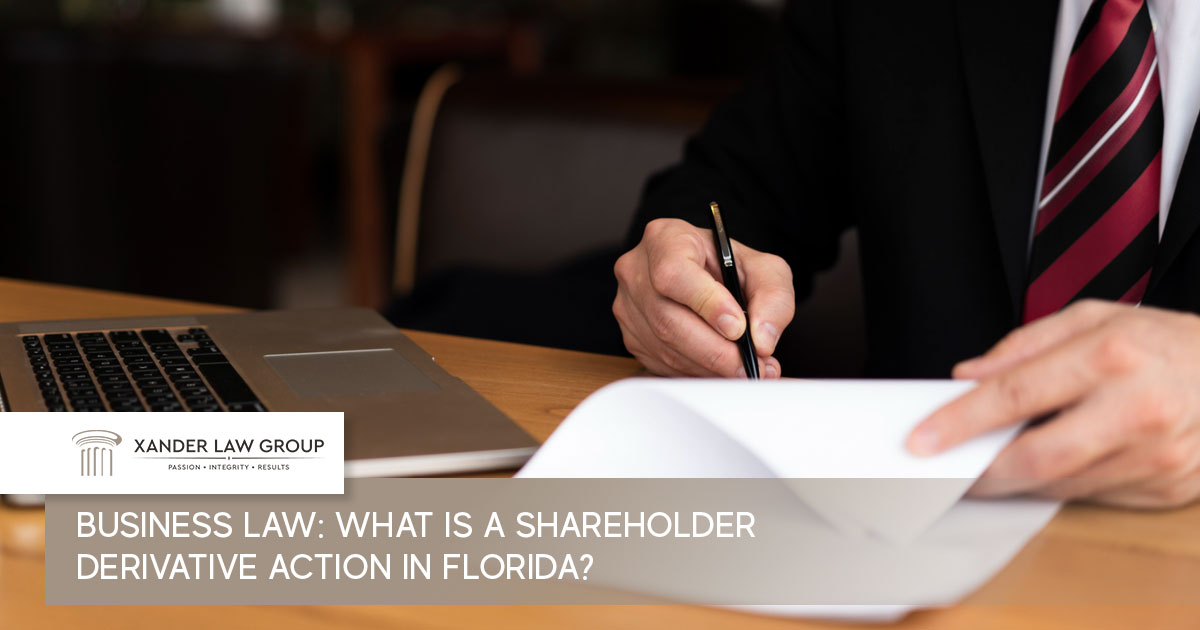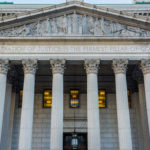Business Law: What Is A Shareholder Derivative Action In Florida

A shareholder derivative action is an important legal mechanism by which a shareholder may hold the corporate officers or directors of a corporation to account. Shareholder derivative actions form part of a complex area of business law and, to be successful, require several legal and procedural requirements to be met. In this article, we unpack the nature and purpose of a shareholder derivative action, the requirements for standing, and the key stages of shareholder derivative action proceedings.
In law, an ‘action’ refers to a legal cause of action, that is, a legal claim that allows a party to approach the court to seek judicial relief. A shareholder derivative action is an action brought by a shareholder (or group of shareholders) on behalf of the corporation in which they own shares, to protect the interests of that corporation. That is, the legal proceedings are brought not in the personal capacity of the shareholder but rather in the name of the corporation.
Usually, a shareholder derivative action is brought against the corporate officers or directors of the corporation. However, it may also be brought against a third party that has committed a legal wrong against the corporation, in circumstances where the directors of the corporation have failed to bring an action against that third party.

Shareholder derivative actions are typically brought in circumstances where the corporate officers, directors, or a majority group of shareholders are harming the corporation’s interests. For example, a shareholder derivative action may be appropriate where the directors of the corporation are embezzling its funds, have been self-dealing, breaching their fiduciary duties, falsifying accounting records, or engaging in some other kind of misconduct or negligence that is causing the company harm (usually in the form of financial loss).
Obviously, in these kinds of circumstances, the corporation is unable to protect itself – for in the ordinary course, it is the directors of the corporation who take legal action to vindicate its rights. But if the directors are the ones engaging in misconduct and causing the company harm, they are highly unlikely to bring an action against themselves. As such, Florida business law makes special provision for concerned shareholders of the corporation to bring a suit against the directors or third party causing it harm. The goal of the action is to bring relief to the corporation rather than the individual shareholder: if the claim is successful, the corporation will be able to recover the damages suffered, and the compensation it receives can then be distributed to all shareholders in the form of dividends.
In civil litigation, ‘standing’ refers to a person’s right to file a lawsuit (i.e. bring a case to court). The rules of standing ensure that only people with a real stake or interest in the outcome of a case are permitted to bring court proceedings. In terms of the general principles of business law, shareholders ordinarily have very little power over the management of a company in which they hold stock. The authority to make decisions affecting the company – including the decision to institute litigation – lies with the board of directors. As such, in the ordinary course, only the corporation’s board has legal standing to initiate litigation in the name of the corporation. For a shareholder to demonstrate to the court that it is necessary to depart from the ordinary rules of standing and permit a shareholder derivative action to be brought, four criteria must be established.
To establish standing in a shareholder derivative action, the party bringing the claim must first show that they were a shareholder at the time that the alleged wrong was committed against the corporation. This requirement prevents persons who became shareholders at a later date, and who do not have an interest in the matter, from instituting proceedings.
The second and related requirement is that the party instituting proceedings must remain a shareholder of the corporation at all relevant times during the litigation, that is until the dispute is resolved.
To bring a shareholder derivative action, a plaintiff must show that they fairly and properly represent the interests of all similarly situated shareholders of the corporation. This requirement is in place to prevent shareholders from bringing derivative actions for their own personal gain.
Serve A Demand On The Corporation (Or Establish Futility)
The fourth requirement is more procedural. In terms of Florida business law, Florida is a ‘demand futility’ state for derivative actions. This means that before launching proceedings, the shareholder in question must first demonstrate that they served a demand on the corporation’s board of directors requiring it to take steps to vindicate the corporation’s rights and recover the losses it has sustained, and notifying the board that should it fail to do so, a shareholder derivative action will be instituted. Only if such a demand has been made – and ignored for a certain period, or denied outright – can a derivative action be brought.
Florida business law also provides that a shareholder may demonstrate to the court that it would be futile to make such a demand to the board because it is biased. In certain circumstances, a shareholder can also demonstrate that it has made a formal demand on the board and a response is pending, but that the court should recognize the shareholder’s standing in any event because the corporation is at immediate risk of irreparable harm.

Typically, the shareholder derivative action process begins when the concerned shareholder serves a written demand on the corporation’s board of directors to take action to protect the corporation’s interests (as described above). If the demand is denied or ignored, the shareholder will then be able to establish standing and will proceed to file the lawsuit against the person/s causing the corporation harm. The proceedings must be initiated in the name of the corporation, and the court filing must include allegations that set out the specific acts of misconduct committed by the directors (or third parties) against the corporation (for example, embezzling funds).
Following the exchange of court filings, the parties to the case will proceed to the discovery phase, in which they exchange evidence in support of their case. Such evidence could include, for example, accounting records, meeting minutes, board resolutions, records relating to any decisions taken without a lawful meeting of the board, and so on. Usually, if the parties are going to enter settlement negotiations, this will take place during or after the discovery phase before the case proceeds to trial (although sometimes settlement is reached during trial). In derivative action proceedings, a case may not be settled without the court’s approval of the settlement. If the shareholder who brought the derivative action is ultimately successful at trial, the court may order that they be compensated for the legal costs incurred in bringing the action on behalf of the company.
Shareholder derivative actions are notoriously complex. Any shareholder who is contemplating initiating derivative action proceedings requires an experienced, highly qualified business law attorney to represent them in their case.
At Xander Law Group, our commercial litigation attorneys have years of experience in a wide range of commercial disputes, from business partner disputes to breaches of shareholder agreements to shareholder derivative action proceedings.
We are passionate about our clients’ cases and are proud to have a reputation for providing outstanding client service. For assistance with your commercial law dispute, give us a call today at 305-767-2001 and we’ll schedule your first consultation.








